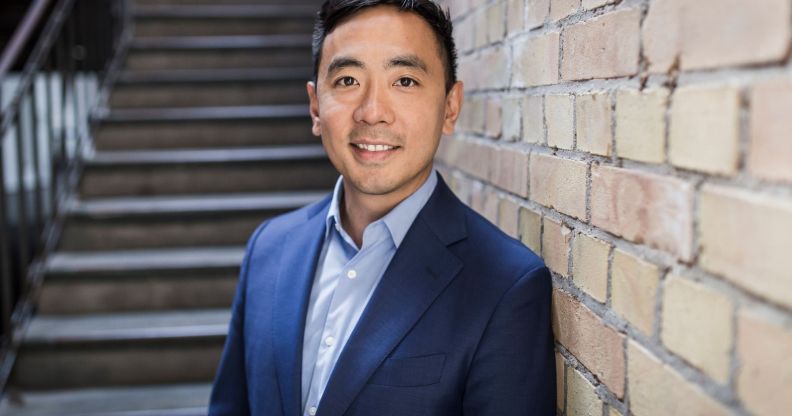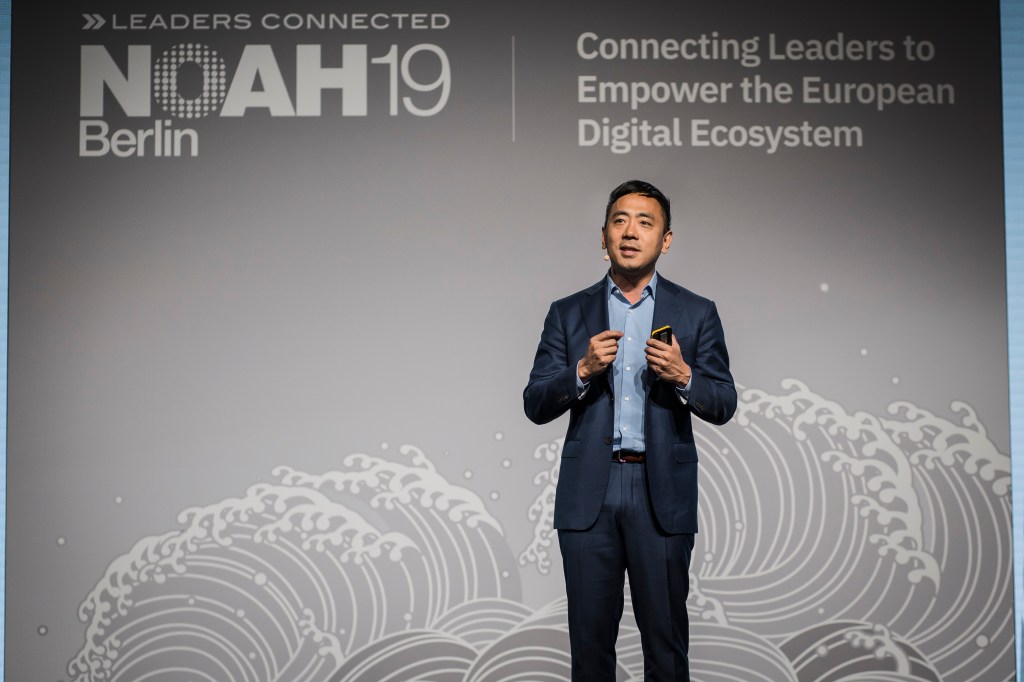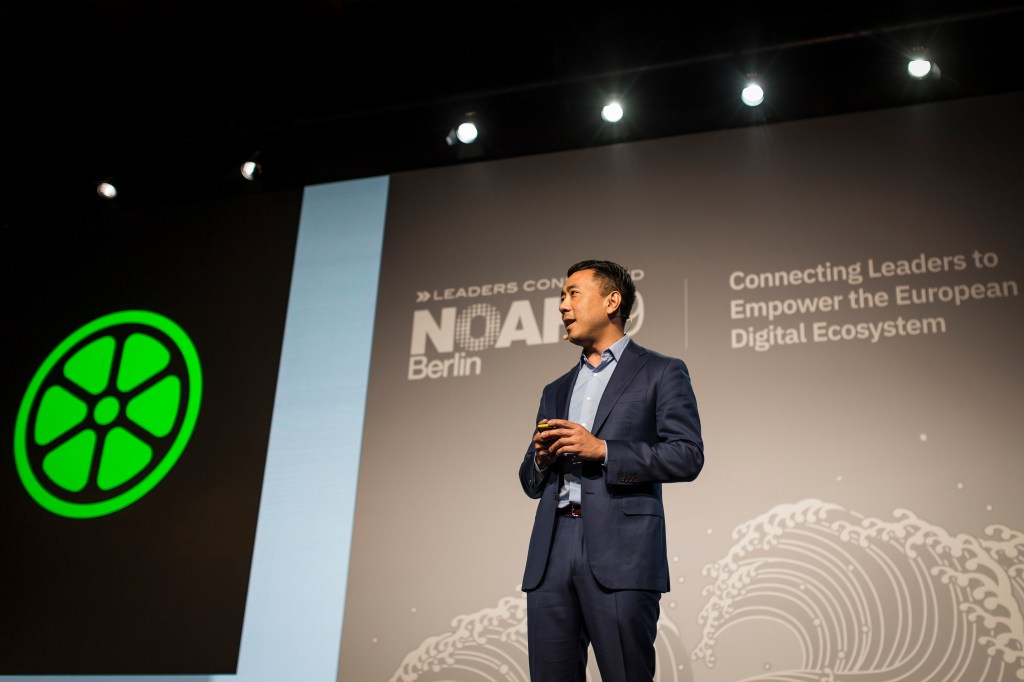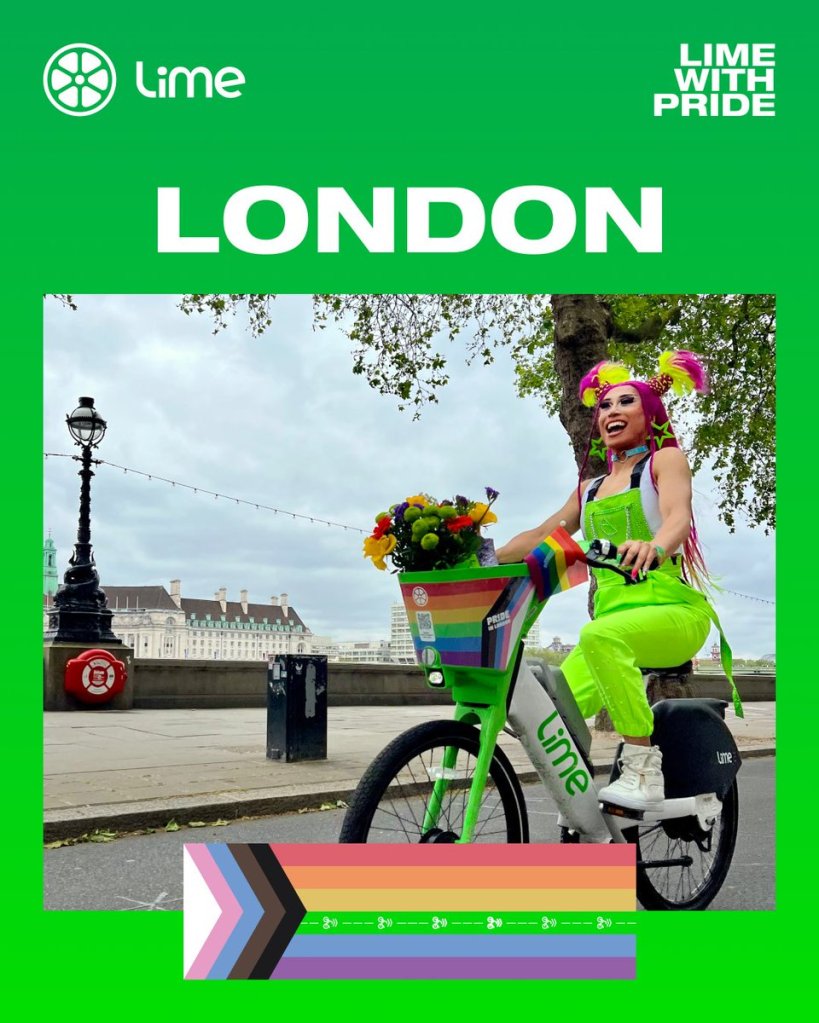Lime CEO Wayne Ting on his journey from ‘isolated’ gay immigrant kid to leading tech boss

Lime CEO Wayne Ting says tech industry leadership is “still not reflective of society as a whole”. (Izzy Dempsey)
PinkNews speaks to Wayne Ting, chief executive at the city scooter and bike rental specialist Lime, to find out how his experiences shaped a career dedicated to diversity and inclusion.
For many professionals, life experiences have an instrumental role in how their careers take shape and evolve. For Wayne Ting, CEO of the micro-mobility company Lime, his moulded him into a resilient leader who values empathy, purpose and inclusion.
Moving to the rural midwestern state of Nebraska from Taiwan with his parents at 9 years old, and then coming out as gay to his family at 11, Ting immediately felt the isolation that can come with those life events.
“I’ll say, there’s living it, and now there’s reflecting on it,” Ting says to PinkNews over a Zoom call.
“There weren’t a lot of immigrants in Lincoln, Nebraska, and I remember as a kid feeling really alone and isolated, then coming to grips with being gay. It was very difficult.”

Reflecting on his childhood now, Ting believes that the alienation he felt back then quickly built up his resilience and shaped him into the leader that he is today.
“It was the most formative experience for me,” he continues. “It forced me to say, “If nobody else here believes in me then I’m going to have to choose to believe in myself”.”
“I was in the room, but I wasn’t included.“
Wayne Ting, chief executive at Lime
Throughout his career, Ting has always valued the personal authenticity he discovered while growing up – but that doesn’t mean he never questioned himself. After coming out to colleagues at an investment banking firm early on in his career, he doesn’t remember what was said to him, but what wasn’t.
“It wasn’t that people weren’t overtly homophobic,” he recalls. “What I immediately noticed when I came out was that nobody senior ever asked about my personal life again.”
“We talk about diversity and inclusion, and this [is] the inclusion point,” he continues. “I was in the room, but I wasn’t included.”
That feeling led Ting to second-guess himself and he even questioned if he had to try harder to “fit in.” Needless to say, Ting wasn’t terribly successful at that firm, and he admits it was because he used too much mental energy trying to fit in rather than be creative and productive.
“When you spend 20 to 30 per cent of your brainpower on worrying about fitting in, there is no way you can be at your very best,” he notes.
After that experience, Ting went on to work at the White House as a senior policy advisor for the National Economic Council. He navigated his career into the tech sector, initially at Uber, then onto Lime, where he has been leading the company since May 2020.

Lime’s purpose falls at the intersection of technology and sustainability. The firm is now in over 300 cities and boasts a diverse workplace where inclusion is an integral part of the business.
“I want the people we hire – [that] we spent this much money recruiting – to be their very best,” he asserts. “You can’t do this unless you create an environment where we can all be our authentic selves.”
Aside from the obvious moral argument for employees being able to live their authentic lives at work, Ting acknowledges that there is also a business case for an inclusive workplace.
“My customer base is diverse. My customer base is progressive. My customer base cares about these things,” he says.
“If my product doesn’t reflect their values, and we don’t show up in a way that feels authentic to my customers, especially to the young generation, they don’t want to put their money in.”
“Allyship doesn’t count for anything if you’re only an ally when things are easy.”
Wayne Ting, chief executive at Lime
During his time at Uber, Ting served as the first chair of the tech company’s LGBTQ+ employee resource group (ERG). Now, as the head of Lime, Ting is the executive sponsor of LimePride, the firm’s LGBTQ+ employee network.
For Ting, ERGs offer a space to cultivate mentorship through shared experiences and allow for different voices to have input in big business decisions.
“One thing that [the] ERG does is create a group of peers who have similar backgrounds, and also allow you to reach higher,” he says.
“It’s a sense of belonging with each other.”
Ting admits that 2023’s Pride Month seemed more divisive than in recent years, with conservative backlash and transphobic rhetoric spewed towards brands like Target and Bud Light. He stresses that this is the time when allyship matters the most.
“It’s been really amazing to me how many companies have actually toned down because there has been a backlash this year, especially towards the trans community,” he says.
“Allyship doesn’t count for anything if you’re only an ally when things are easy and you’re the first to run for cover when things are hard.”

Ting says that Lime has “doubled down” on its Pride support this year due to the backlash and brand boycotts. Lime have released Pride bikes and scooters in major markets like London, Chicago and Tel Aviv along with charitable donations to LGBTQ+ organisations.
This initiative was done entirely in-house with support from the Lime Pride ERG. Ting credits the company’s ERGs for strength and guidance during this time of “crisis.”
“These groups are oftentimes the conscience and the rallying internally to say, “Let’s do the right things”.”
As one of the few out gay Asian CEOs in tech, Ting is the first to admit that the boardrooms and C-suites in Silicon Valley do not reflect the diversity within the US.
“Where we are today is still not reflective of society as a whole. Certainly not from a gender perspective, and certainly not from a race perspective,” he says, before nothing that things are at least better now than they were a decade ago.
When it comes to inclusive leadership in tech, Ting says that while things have improved over time, there is still a lot of work to be done – especially when it comes to making sure that all marginalised groups get a chance to shape businesses.
However, he believes it is important to celebrate the progress made so far.
“The fact that the CEO of Apple is openly gay, 30 years ago when I was a kid in Lincoln Nebraska I didn’t think something like that will ever be true.”
He concludes: “I do think the intention is there and action is being taken – and hopefully in 20 years, we’ll look back and we’ll say, “Wow, look at the progress we’ve made”.”
How did this story make you feel?

